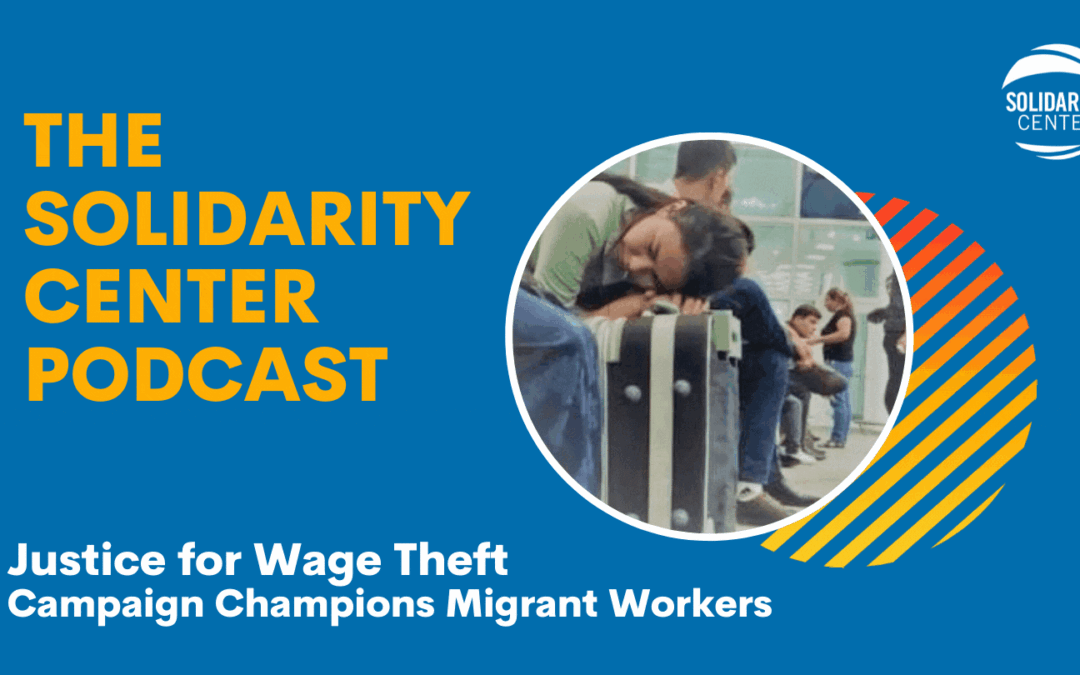Millions of migrant workers trapped in pandemic lockdowns were forced to leave their employers and return home—bearing all the costs even as they often were unpaid for the work they had performed, says Michael Joachim, co-founder and director of the Plantation Rural Education and Development Organization in Sri Lanka.
“Wage theft was already there, but then during COVID-19, it happened on a mass scale,” Joachim tells Solidarity Center Executive Director Shawna Bader-Blau on the latest episode of The Solidarity Center Podcast.
“Normally, a migrant worker would be paid a return ticket by the employer. Failing which, the host country in some way contributes to their return,” Joachim says. “So, nothing like that happened. The migrant worker had to pay his own money for the return ticket. Pay his own money for quarantine, pay his own money to get back home. So, he completely lost everything. Now, if you just imagine, a person who had borrowed money to go abroad.
“And then, he also borrows money to come back. Because, to come back also, for the return ticket, for quarantine, he had to still borrow money.”
Joachim’s organization is part of the Justice for Wage Theft Campaign, a global network of unions and migrant rights organizations, including the Solidarity Center, formed during the pandemic to push for governmental and employer reforms to ensure migrant workers have access rights fundamental to all workers.
Listen to This and All Solidarity Center Podcasts
Listen here to find out how the Justice for Wage Theft campaign is working to level the playing field for migrant workers or check it out on Spotify, Amazon, Stitcher or wherever you subscribe to your favorite podcasts.
Download all Solidarity Center episodes here and be sure to check out more episodes from Season Two:
- ‘I Feel Strong When I See Other Women with Us’
- Thai Fast Food Workers Fight for a Fair Share
- ‘No’ to State Violence! Reimaging Policing
- Jordan Agricultural Workers Win Rights@Work!
- Young Workers Struggle to Find Good Jobs
- Nigerian Informal Workers Demand Decent Work!
The Solidarity Center Podcast, “Billions of Us, One Just Future,” highlights conversations with workers (and other smart people) worldwide shaping the workplace for the better.

